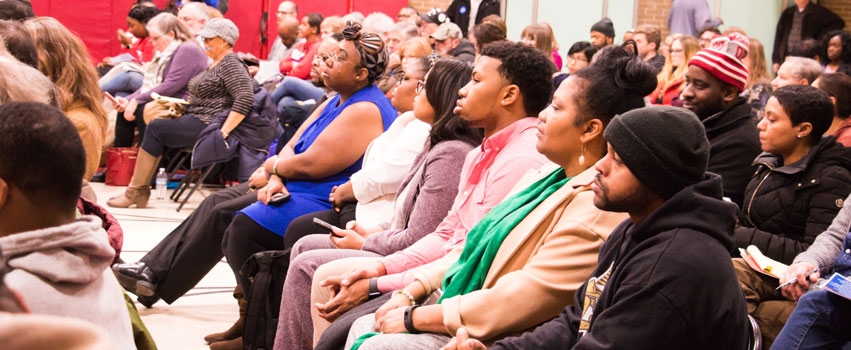Betty Friedan: Yesterday and Today
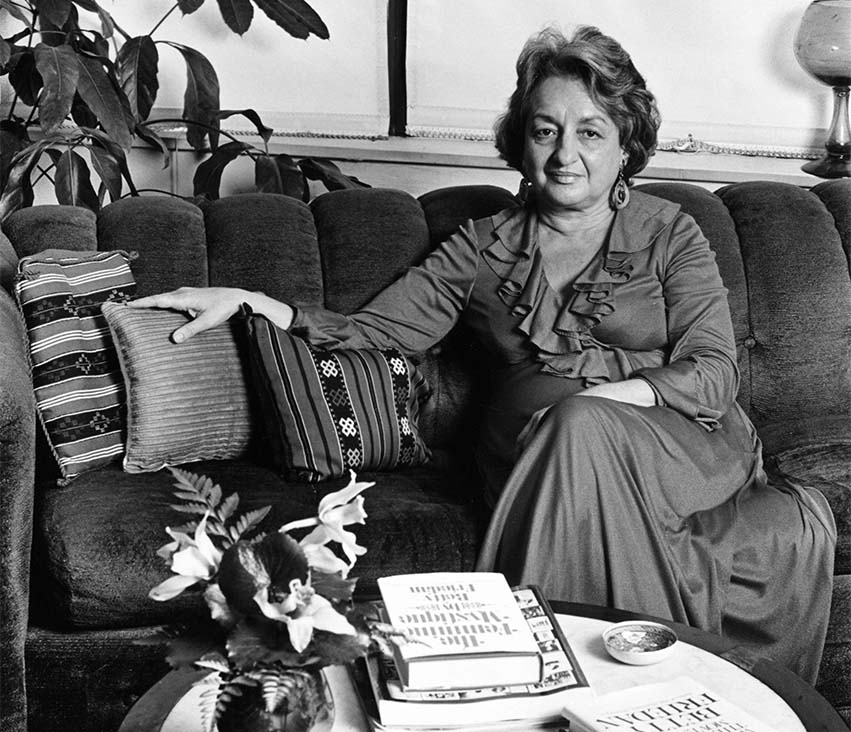
Last spring I was sitting between my granddaughters on the Betty Friedan Memorial Bench in Upper Bradley Park. I wanted to tell them about the woman this bench celebrates and what she did to make their lives better. But I didn’t quite know how to tell a five- and six-year-old that Betty Friedan, who lived right across the street, helped make it possible for them to play soccer and basketball (even on teams that include boys) and to dream of becoming an astronaut or a builder or an artist—careers they have considered. They, however, just wanted to run to the playground and weren’t paying much attention to their grandmother’s monologue.
I understand why girls that young cannot envision the day when newspaper career scholarships were offered only to boys, when employers could refuse to hire women with pre-school children, when the want ads were routinely segregated by gender, when women could no longer work as flight attendants after they turned 35 or got pregnant. It was a time when, as Friedan put it in her landmark book, “the mystique of feminine fulfillment” held that “a woman’s calling was as a housewife and mother, and those roles were incompatible with all others.” The year was 1963.
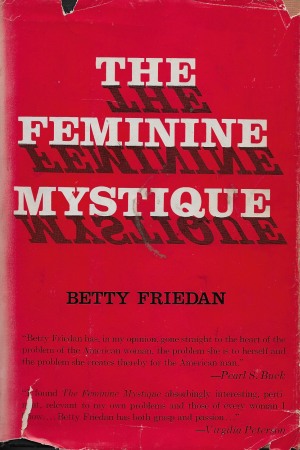 Influencing the World
Influencing the World
Historian Martin Seymour-Smith says The Feminine Mystique is among the 100 most influential books ever written, along with the Bible and the Koran. It is credited with launching the feminist movement, which triggered so many huge changes in society. Friedan herself was a critical early leader, serving as a co-founder and first president of the National Organization for Women (NOW). Its purpose was “to take the actions needed to bring women into the mainstream of American society now, exercising all the privileges and responsibilities thereof, in truly equal partnership with men.”
NOW was successful in petitioning the federal Equal Employment Opportunity Commission to rescind its guidelines allowing discriminatory want ads and to issue a sex discrimination finding on behalf of female flight attendants. Congress also stepped up; the Civil Rights Act of 1964 outlawed discrimination on the basis of gender as well as race. Title IX of the Education Amendments of 1972 took that a step further: schools offering athletic programs for boys had to do the same for girls. And ruling after ruling from the U.S. Supreme Court reinforced the principle of equality under the law in hiring and other practices.
Friedan would go on to write five more books, including one entitled It Changed My Life. “Did it change your life?” she asked when I interviewed her in 1999. I had to say that it did. The high school student who was denied a Journal Star scholarship application because women didn’t have newspaper careers had a 40-year career in newspapers. And Friedan changed many lives in other ways—I’m thinking of the years she spent helping formerly all-male colleges adapt to educating women.
She didn’t do it all herself, of course. Still, it is no wonder that a group of historians ranking the 100 most influential women ever to have lived placed Friedan in the 29th spot, right between Eleanor Roosevelt and Joan of Arc. A 1992 survey of more than 300 U.S. historians said she was the 20th century’s seventh most important American woman.
We should be pleased and proud this extraordinary woman was born precisely 100 years ago in Peoria. She credits her hometown with not only making her aware of discrimination—which she especially experienced as a Jew—but with making her believe that change was possible. “Much that I am IS Peoria,” she once told a New York Times reporter. As she told me, “In Peoria there really was a kind of community organizing. If there was a problem, you could organize in the community to deal with the problem.” That wasn’t always true in big cities, she added. She often returned to Peoria to visit with friends and community changers because their views helped her figure out how best to proceed in changing the world.
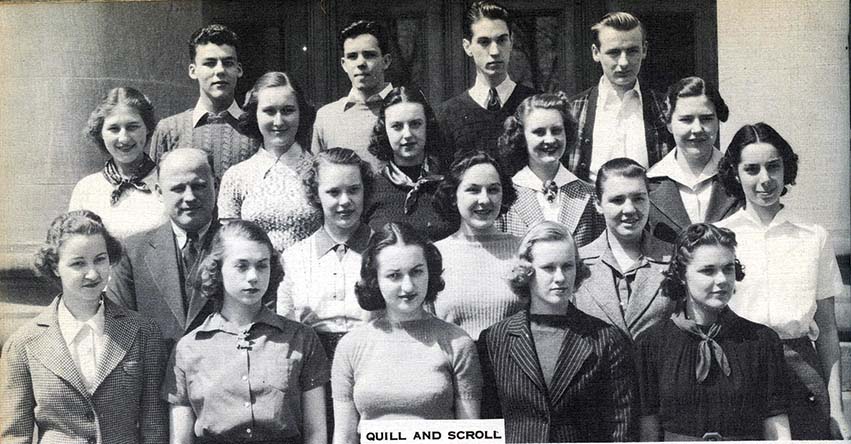
Unlimited Aspirations
There have been many drastic changes in the roles of women in the 58 years since The Feminine Mystique was published. In 1960 just one third of bachelor’s degrees in this country were awarded to women; now nearly 60 percent are. That same year just eight percent of athletes were women; now about 40 percent are. In 1960 only three percent of law degrees went to women; now the gender percentage is evenly split. Back then women accounted for only seven percent of physicians. While they are still in the minority (37 percent), 60 percent of all doctors under age 35 are women! And there are more college-educated women in the workforce today than college-educated men.
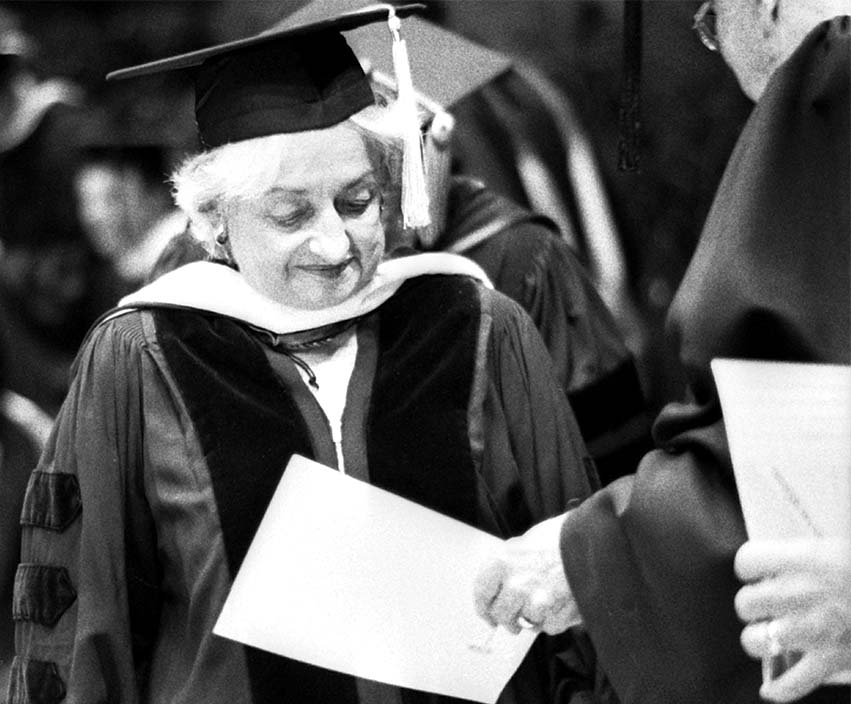
When I interviewed Friedan, I asked if she thought these changes would have taken place had she not written this extraordinary book. She said they eventually would have because the time was ripe… but it would have taken longer. Not that everything was perfect back in 1999 either. The biggest disappointment of her career, she told me, wasn’t the nation’s failure to pass the Equal Rights Amendment, but its failure to establish a child care program so that all who needed such care in order to work could have it. This is especially relevant today when the lack of affordable care continues to be a major reason people are unable to take jobs that need filling. I believe she would support current efforts to boost affordable child care.
Regardless, Friedan deserves a lot of credit for the kind of lives my granddaughters enjoy now, as well as the lives to which they can aspire. I hope their calling will include being wives and mothers, but I believe there are no limits to their aspirations. I am glad they are unable to conceive of a day when that was not the case.
Betty Friedan died in 2006. But if she were alive today, I’m sure she would understand why these girls didn’t understand what I was trying to tell them. Here’s what she told me 22 years ago: “Young women… take it all for granted. They’ve grown up with expectations and with a different kind of consciousness. They think it’s always been like that.”
It has not. And I know we won’t go back. PM
Barb Drake is the retired editorial page editor of the Journal Star and a member of the committee promoting “HerStory: A Musical Tribute to Betty Friedan,” premiering at the Peoria Symphony’s November 20 concert.
